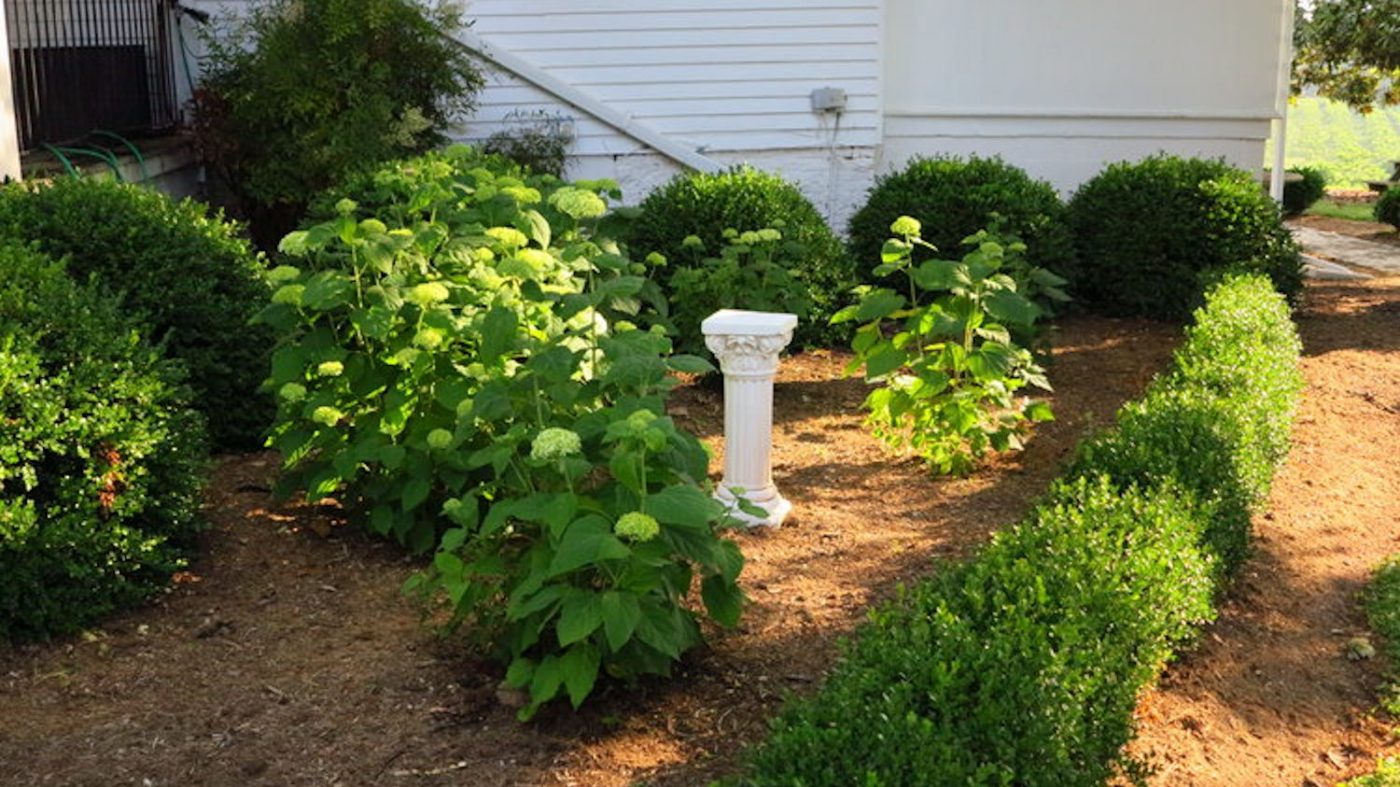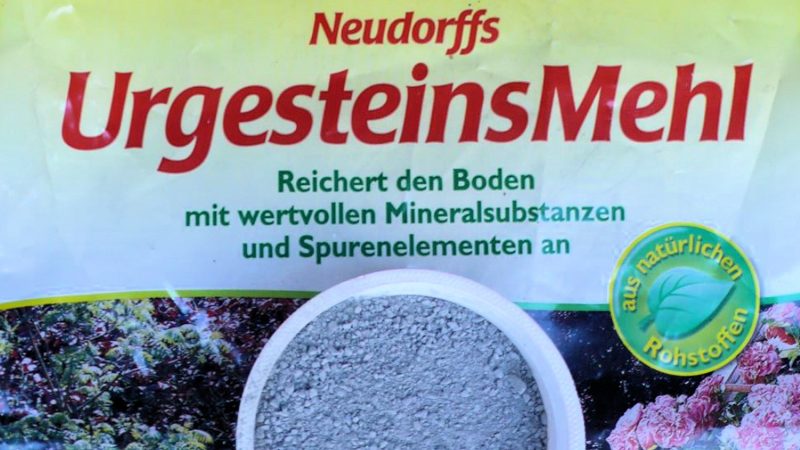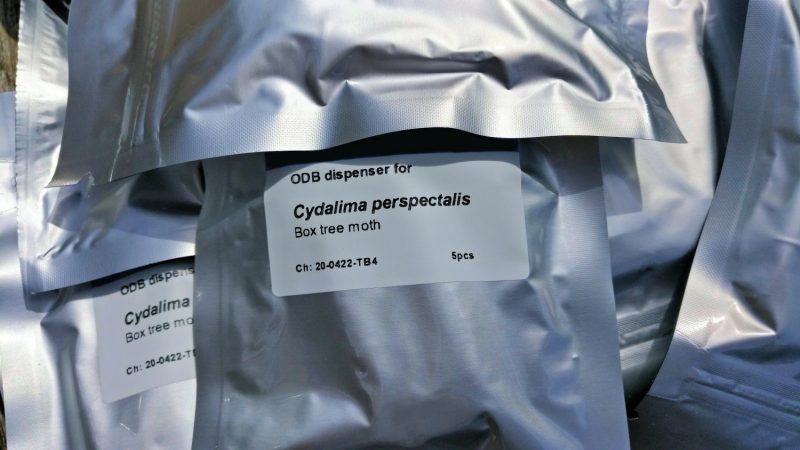Benefits of Mulching Boxwood
Mulching is a common landscape practice that is used to suppress unwanted weeds, reduce evaporation from the soil, and encourage proper soil ecology and structure while being visually appealing. Recent research has also shed light that mulching can be an effective tool to aid in pest and disease management. Earlier this year, Virginia Tech published data from a two-year study showing that mulching can be a great tool to help prevent Boxwood Blight.
The experiment was set up in two locations, one being an old nursery in Low Gap, North Carolina and the other a residential landscape near Richmond, Virginia, both previously devastated by Boxwood Blight. This field trial consisted of both mulched and non-mulched treatments and was done for two years under normal environmental conditions. The goal of this study was to evaluate mulch as a physical barrier to prevent the soil inoculum from splashing onto healthy plants.
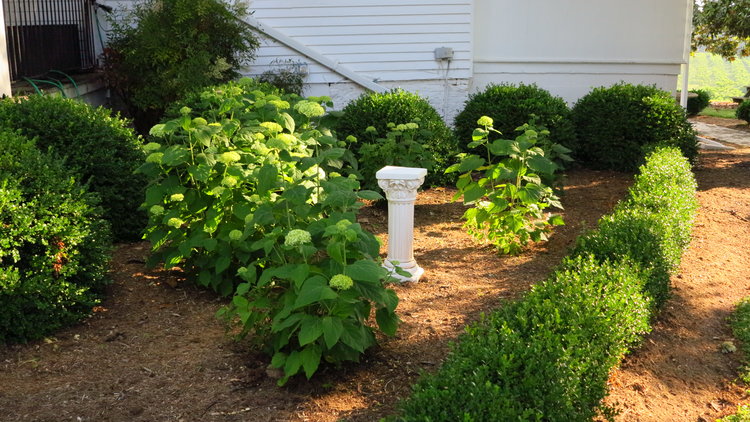
The fungal pathogen Boxwood Blight (Calonectria pseudonaviculata) produces heavy, sticky spores on diseased leaves that fall to the soil. There is no evidence to date of the pathogen attacking boxwood roots, so it was thought that providing a physical barrier of mulch would prevent the inoculum from splashing onto the leaves where the pathogen can affect the plant. The experiment used containerized ‘Justin Brouwers’ boxwood which are known to be highly susceptible to Boxwood Blight, that were rotated through mulched and non-mulched plots at 1-to-2-week intervals.
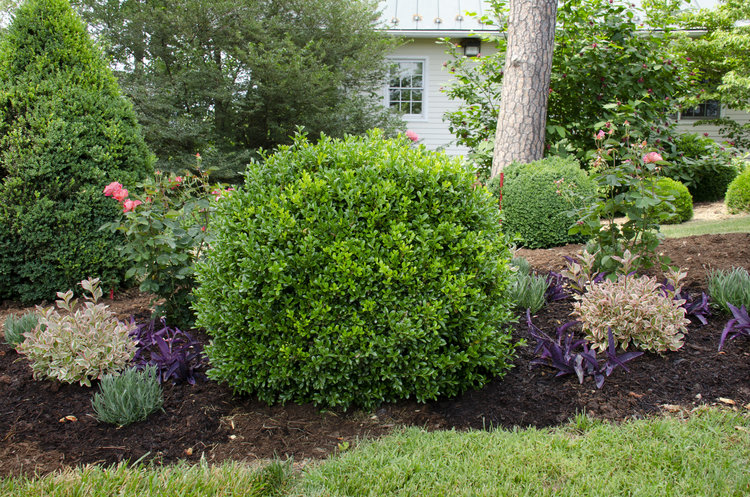
Results of the experiment showed clear distinction between the mulched and non-mulched plants. The mulching reduced the number of Boxwood Blight lesions by up to 97%! Even the scientists working on the project were amazed by the unbelievable difference that mulch made. Although for a long time it was thought that mulching boxwood plants was a bad idea but, this study shows that it can be an exceptionally effective tool for Blight control. Below you will find a downloadable PDF of these findings. Saunders Brothers Nursery worked with Chuan Hong and his team to provide plant material for the experiment.
Boxwood blight is a multi-faceted disease that can be overcome with smarter growing practices and understanding. Mulching has been proven to be another very simple and accessible tool that can help prevent this disease.
Thanks to Saunders Brothers for allowing EBTS UK to reprint their article which first appeared on the NewGenBoxwood.com website on 1st August 2019. If you visit the site you will find information about the advances the company is making in to enhance overall performance, including insect resistance (boxwood leafminer), phytophthora resistance and most importantly, producing great looking boxwood plants that have increased blight tolerence.

